- ComMEATted Project -
ComMEATted
Committed to the responsible development of meat replacement products and practices: comparing multidimensional barriers and potentials in European countries [JPI HDHL "FOODRETEC"]
The ComMEATted project, Committed to the responsible development of meat replacement products and practices: comparing multidimensional barriers and potentials in European countries [JPI HDHL "FOODRETEC"], winner of the FOODRETEC/JPI HDHL 2023 call for proposals, officially commences today for a duration of 36 months. It will examine, from an interdisciplinary perspective and across 5 countries (France, Ireland, Norway, Austria, Romania), how a dietary transition towards reduced meat consumption (potentially relying on the consumption of plant proteins, insects, and synthetic meat) can be possible and under what conditions.
Funded by national research agencies, ComMEATted, led by DCS, involves around twenty colleagues.
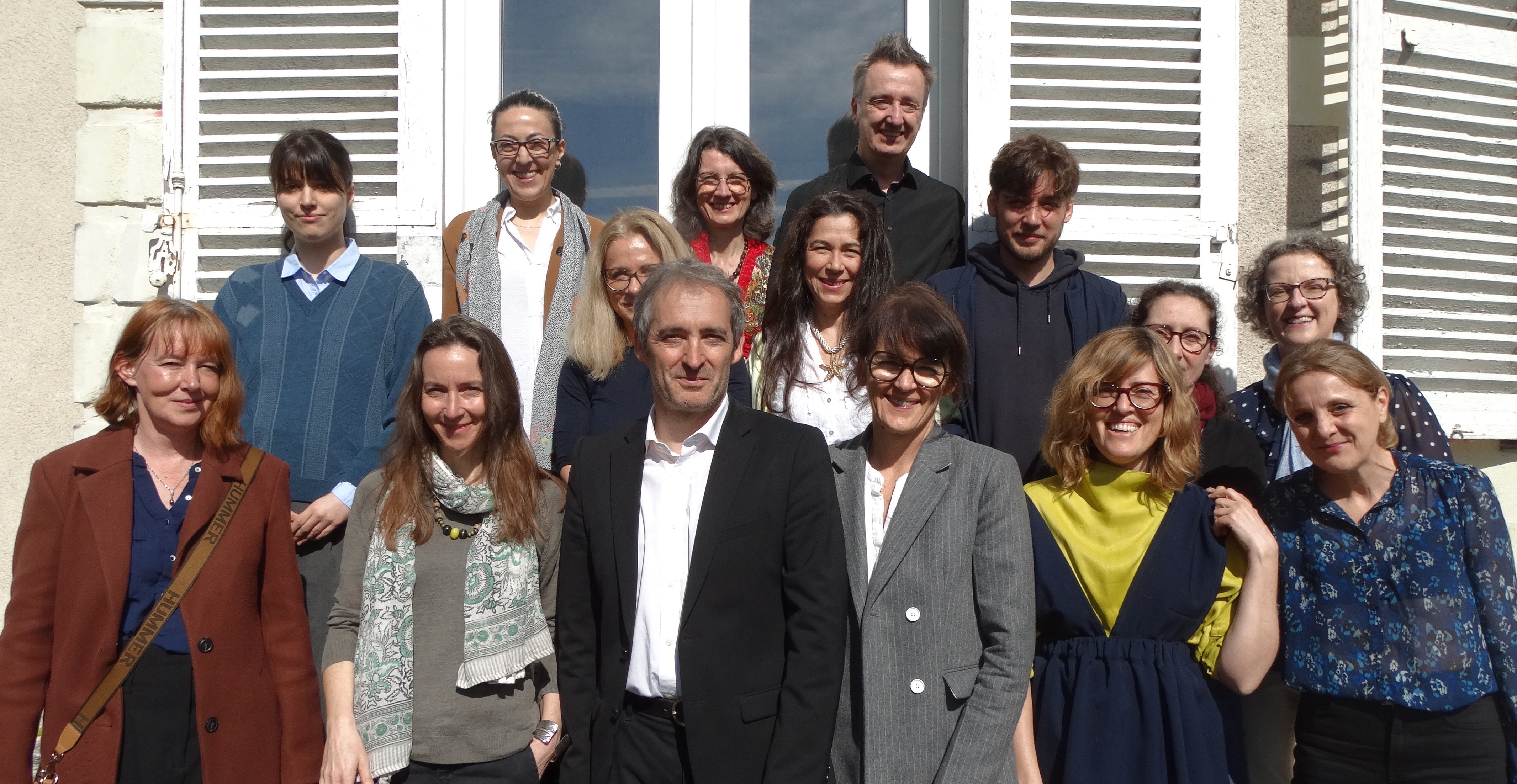
European research project launched!
Facilitating the transition to sustainable protein consumption:
Traditional eating habits and cultural norms vary widely across Europe, creating a complex landscape for the introduction of alternative proteins. To address this complexity, the project adopts an innovative approach that considers various contextual factors, including social, cultural, regulatory, economic, psychological, ethical, religious and ideological dimensions. ComMEATted ensures active involvement of a diverse range of stakeholders (e.g., consumers, policymakers, NGOs, industry, and media representatives) throughout the research process. This collaborative approach to knowledge creation offers valuable insights into the challenges and opportunities associated with transitioning to alternative proteins.
Elisabeth Lambert (PI), CNRS Research Professor, Nantes/DCS.
News
--- --- --- --- ---
Food labelling: Judgment of the EU Court in Case C-438/23 - Protéines France, 4 October 2024
Protéines France and Others: On 4 October 2024, the Court of Luxembourg ruled that a Member State may not prohibit the use of terms traditionally associated with products of animal origin to designate a product containing vegetable proteins.
[CJUE, aff. C-438/23 du 4 octobre 2024, Protéines France e.a.: la Cour de Luxembourg admet ce 4 octobre 2024 qu'un Etat membre ne peut pas interdire l'utilisation de termes traditionnellement associés aux produits d'origine animale pour désigner un produit contenant des protéines végétales.]
(case available in French and in Danish)
https://curia.europa.eu/jcms/upload/docs/application/pdf/2024-10/cp240168fr.pdf ;
https://eur-lex.europa.eu/legal-content/EN/TXT/?uri=CELEX%3A62023CJ0438
--- --- --- --- ---
Seminar - Controversies Surrounding Meat Substitutes in Europe: Presentation of the ANR ComMEATed Program, 4 October 2024
[CERTOP/SANTAL-LISST SEMINAR]
Methodology, and Initial Results for France - With the participation of Sandrine Barrey, Mathieu Aristegui, Enola Comte, and Julien Figeac
Presentation of the ANR ComMEATed program at the LISST and CERTOP cross-disciplinary health seminar (Université Toulouse Jean-Jaurès), as well as the methodology and initial results of WP2 France.
This generated a lot of interest.
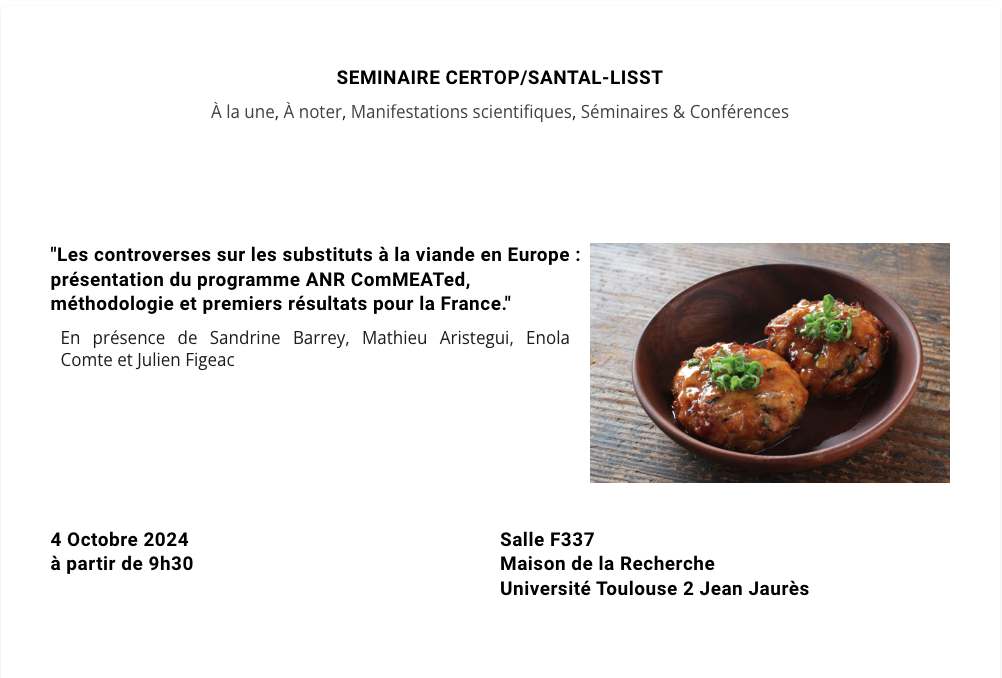
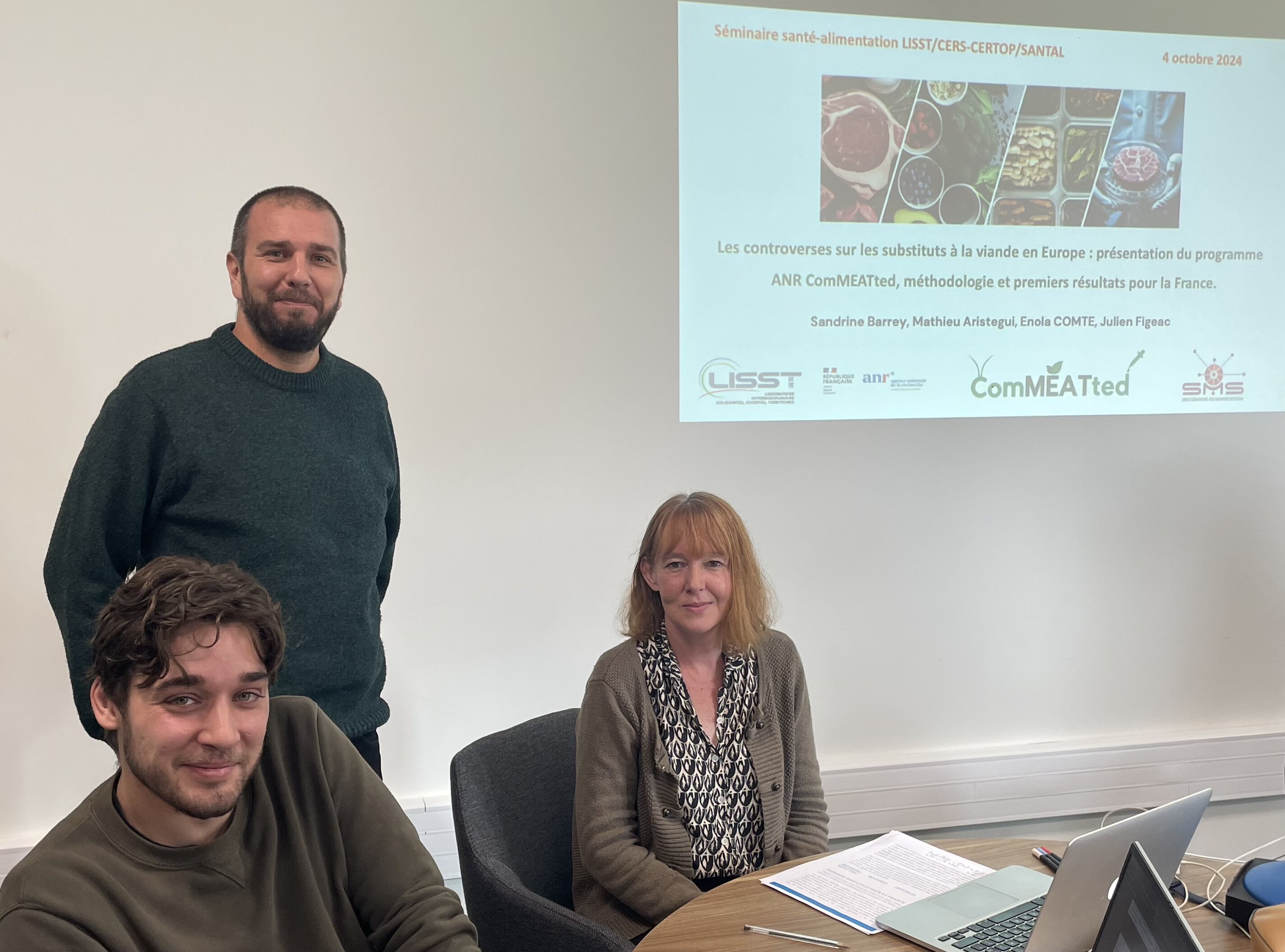
Photo from left to right: Mathieu Aristegui, Julien Figeac, Sandrine Barrey --- --- --- --- ---
Publication of the AlimAlternatives Study, September 2024
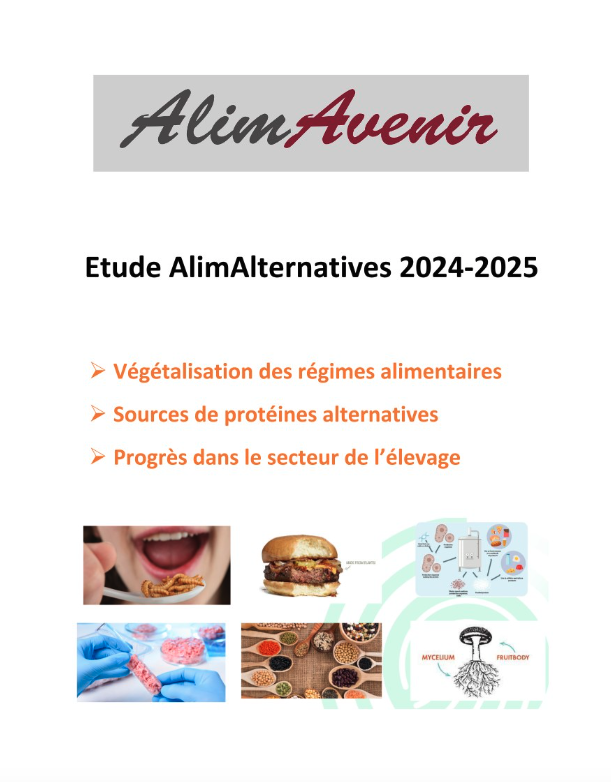
An independent study (350 pages) that provides an overview of the evolution of dietary patterns, the growing consumption of plant-based substitutes for animal products, and the outlook for various alternative protein sources. Details of the 10 chapters and membership conditions for the program, which also includes a monthly monitoring service, are available.
More info…
--- --- --- --- ---
The UK becomes the first European country to approve lab-grown meat (starting with pet food), 17th July 2024
More info here: https://www.theguardian.com/environment/article/2024/jul/17/uk-first-european-country-to-approve-cultivated-meat-starting-with-pet-food
and here in French: https://www.courrierinternational.com/article/alimentation-la-viande-cultivee-en-laboratoire-autorisee-au-royaume-uni
--- --- --- --- ---Ban on lab-grown meat products, 14th May 2024
After Italy, two U.S. states are banning manufacturing, selling, and distributing cultivated meat and poultry products.
Food Safety News, "Little to be found, but the lab-grown meat products are subject to bans" - By Dan Flynn
More info…
--- --- --- --- ---
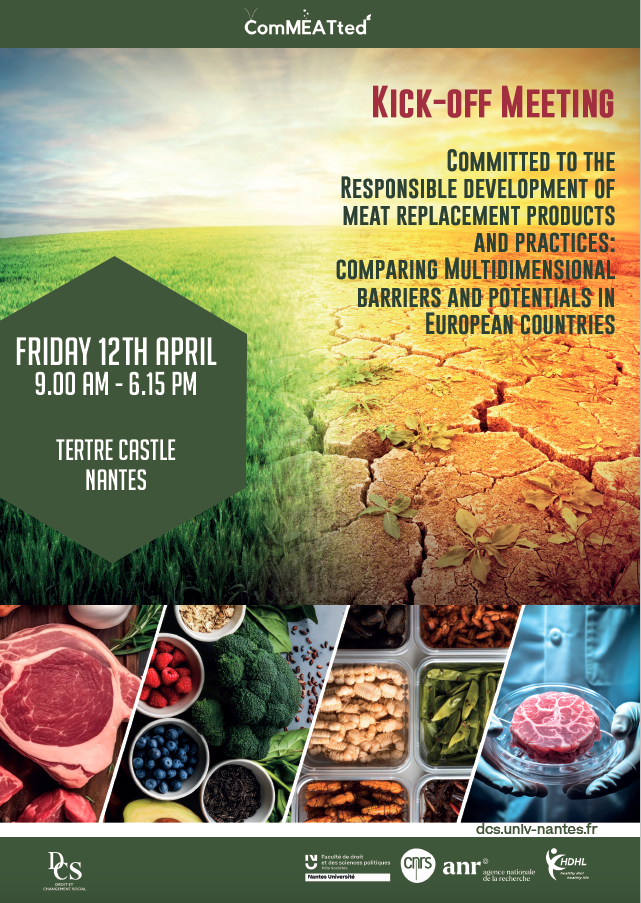
Kick off meeting, 12th April 2024 (Tertre Castle - Nantes)
Program
Committed to the Responsible development of meat replacement products and practices: comparing Multidimensional barriers and potentials in European countries
--- --- --- --- ---
The Council of State, 10th April 2024
The Council of State, in interim proceedings, suspended on April 10, 2024, the government decree dated February 26, 2024, which prohibited naming products containing vegetable proteins with terms used for meat or charcuterie, such as "steak". It refers the matter to the CJEU through a preliminary ruling to determine whether a Member State can adopt national measures regulating or prohibiting such denominations.
Link to “Conseil d'État” - Case to be followed...
--- --- --- --- ---
Across the Nation, Lawmakers Aim to Ban Lab-Grown Meat, 12th March 2024
State legislators from Florida to Arizona are seeking to ban meat grown from animal cells in labs
[Restricting the sale of protein cultured from animal cells, developed as a way to raise meat without the climate impacts of livestock, has become a trendy right-wing legislative focus in states from Arizona to Florida.]
Inside Climat News - By Wyatt Myskow, Lee Hedgepeth
--- --- --- --- ---
The French government published a new decree, 26th February 2024
The French government published a new decree on 26th February 2024 banning the naming of plant-based protein products with words referring to meat.
Link to Public Sénat
Link to the French Decree
--- --- --- --- ---
20 February 2024 - Publication of a study
On 20 February 2024, the Climate Action Network and the French Society of Nutrition (SFN) published a study calling for a 50% reduction in meat consumption in France, and a switch to better quality, sustainably produced meat.
Link to the report
--- --- --- --- ---
1 February 2024 - Press
French "Prime Minister Gabriel Attal would like to see "clear legislation at European level on the naming of what synthetic meat is", a process that involves producing meat from animal stem cells. What exactly is he talking about? We explain".
Ouest-France - Camille DESCROIX - Published on 1 February 2024
--- --- --- --- ---
Project
Project Summary: This project aims at answering the following question: Under which conditions are European consumers and stakeholders in five national contexts (Austria, France, Ireland, Norway and Romania) ready to opt for diets that include alternative proteins (cell-based, plant-based and insect-based meat)? It thus ambitions to build knowledge to facilitate a transition towards the responsible production, provision and consumption of novel meat replacements in Europe. Our project innovates by considering consumer choices in context: social, cultural, regulatory, economic, psychological and ethical, religious or ideological grounds because of complex food practices in Europe. Our objective is to thereby map a range of levers that may facilitate a transition to producing, making, selling, cooking and eating healthy alternative proteins in Europe. This proposal includes exploratory research engaging end-users: consumers but also all stakeholders in the food system. It also aims at building more knowledge on narratives and discourses around meat-alternatives promoted by stakeholders in various national contexts (the food Industry, the agricultural sector, consumers’ associations, scientists, religious and ethical communities, the Media), on the domestic and EU regulatory governance, on labelling as well as on consumers’ attitudes towards novel foods (considering their current food regime, trust in institutions and innovations, beliefs and values, psychological and other determinants). By offering a comparison between national contexts, it will better inform national and European stakeholders, in particular policy-makers. The consortium’s strength results from a strong and pluridisciplinary collaboration between partners from the five national contexts with socio-professional actors sitting on an advisory board.
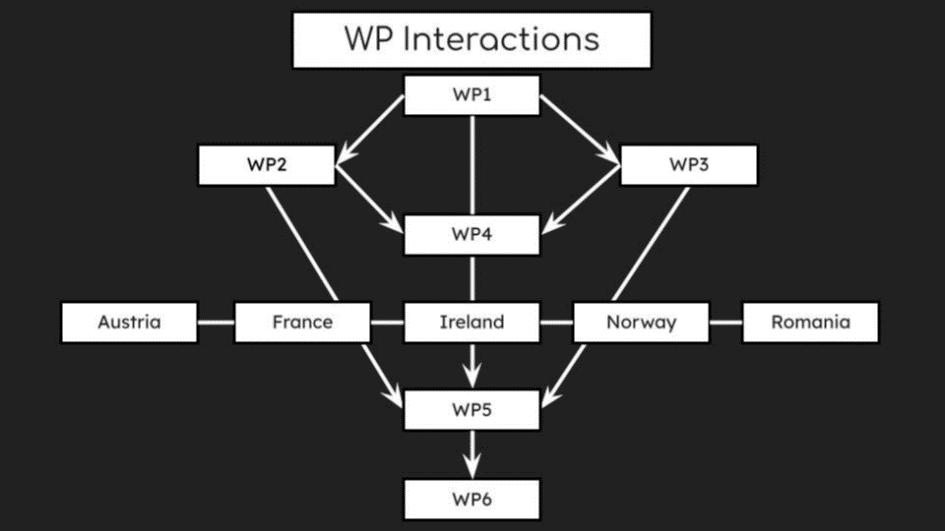
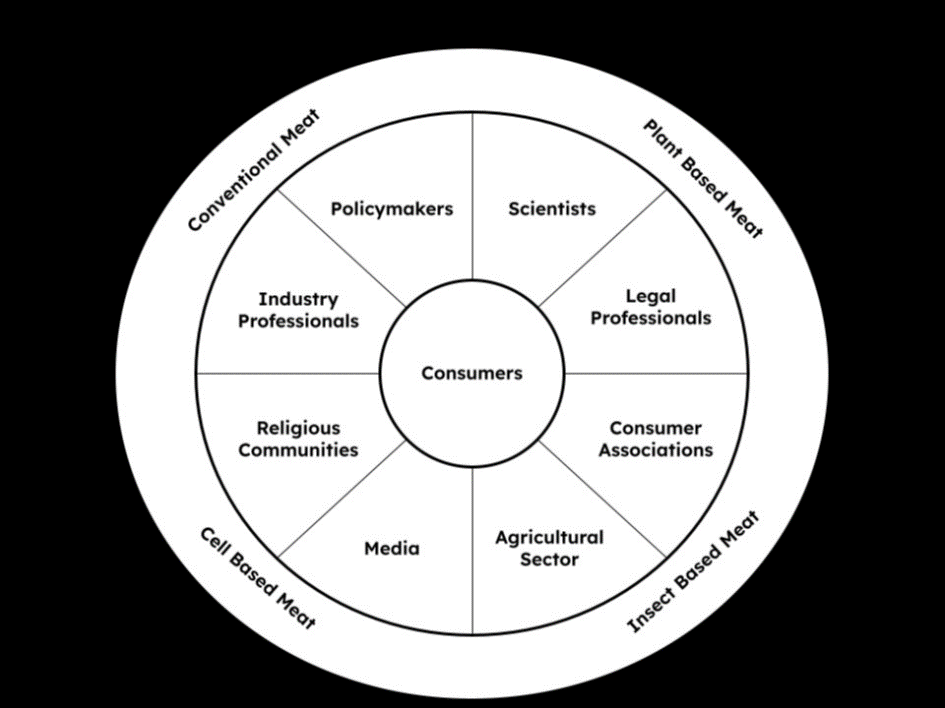
- ComMEATted Project -
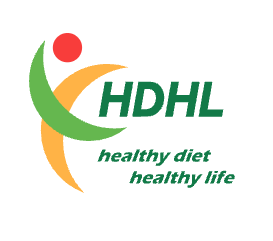

elisabeth.lambert@cnrs.fr
Webmaster:
katia.barragan@univ-nantes.fr



